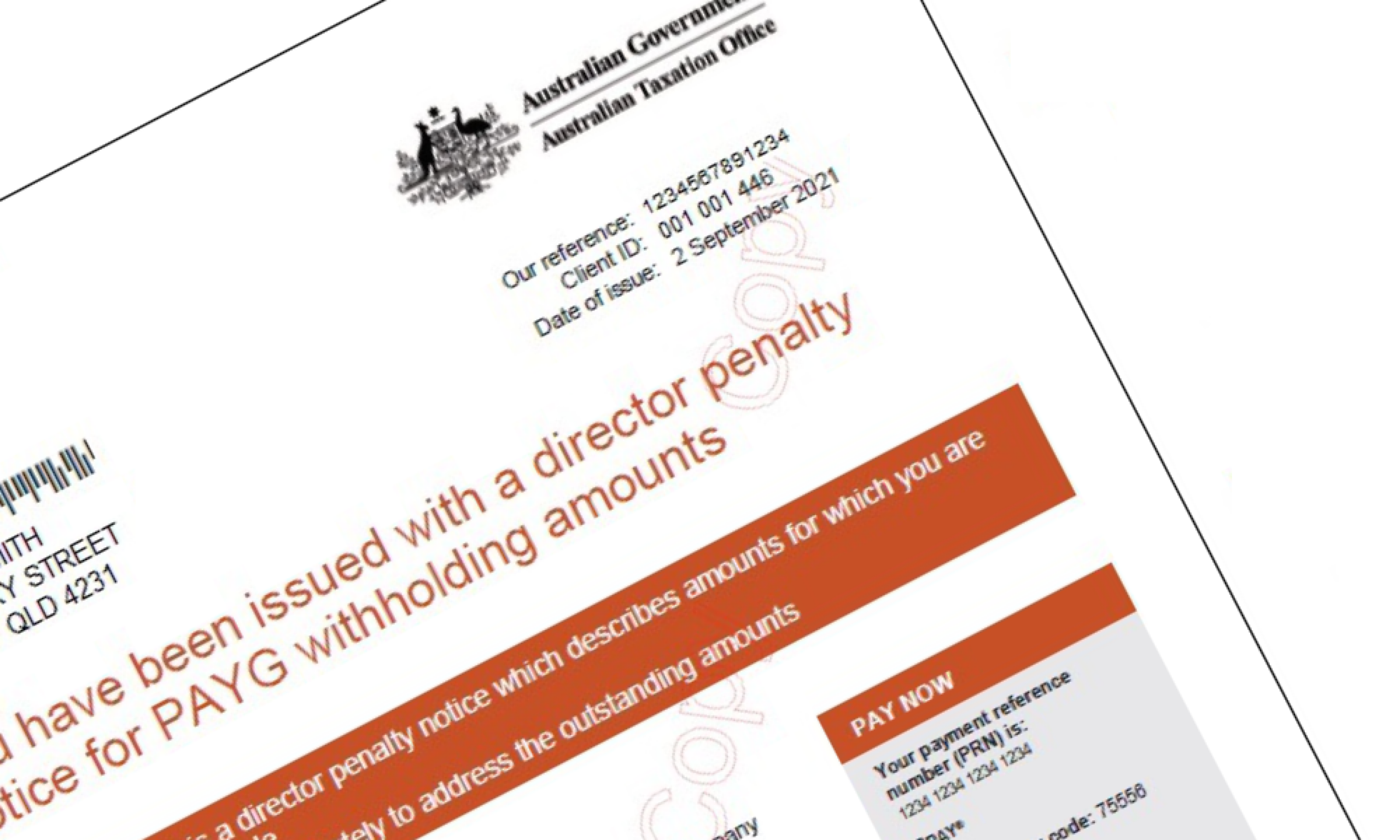If you're a company director and the ATO has issued a Director Penalty Notice (DPN), it’s natural to feel concerned — or even overwhelmed. These notices are serious - and time sensitive, you need to act fast.
At Resolv, we're seeing Director Penalty Notices being issued en masse by the ATO. We're receiving regular calls from accountants and directors who aren't sure how to interpret them - or what they mean for the director.
We put together a detailed guide on interpreting Director Penalty Notices. But there is one key concept that continues to confuse people: Parallel Liability.
How can the ATO hold both the Company and the Director liable for the same debt?
It’s a fair question. A typical call goes something like this:
“The company owes $300,000 and now the director’s received a DPN for the same amount. Does that mean the ATO expects $600,000 back? That's ridiculous”
Thankfully, no.
What Parallel Liability Actually Means
A Director Penalty Notice doesn’t transfer the debt from the company to the director, and it doesn’t create a new, separate debt. What it does is make the director personally liable for the same amount — at the same time.
This is called parallel liability. Both the company and the director are liable for the same debt, and the ATO can pursue either party to recover it.
How it works in practice:
Let’s say the company owes $300,000 in unpaid PAYG and GST. Director Penalty Notices are issued to the director for the same amount.
If the Company pays $40,000, the Company and directors personal liability reduces to $260,000.
If the director then pays $20,000 personally, the Company and Directors debt drops to $240,000.
It's a shared responsibility until the debt is cleared.
Important: This is a simplified example. In reality, the ATO applies payments made by the Company according to a specific set of rules under PSLA 2011/20.
A real-world catch: Where you pay matters:
Because of the ATO’s payment allocation rules, how and where payments are made can affect whether a director sees a reduction in their Director Penalty liability.
We strongly recommend that any payments made after a Director Penalty Notice is issued are paid directly against the director's DPN account, not the company account. Here’s why:
Payments to the company’s account may be applied to other periods or interest and penalties first, meaning the Director's Penalty Notice account balance may not reduce as expected, or to an equal amount.
Payments to the Director Penalty Notice accounts are applied specifically to the director’s parallel liability — ensuring a reduction of the exact amount paid on the Director Penalty account. This payment is then applied to the Company account in full.
We've seen cases where directors believed a company payment would reduce their liability, only to find it hadn't been applied in that way. But now they've accessed the money which was available to them and struggle to come up with additional funds.
⏱ Timing Matters — Especially With Non-Lockdown DPNs
If the DPN is a non-lockdown, directors have 21 days from the date of the notice to take action. This timeframe is strict — there are no extensions.
If you miss this window, the personal liability cannot be remitted, regardless of what happens afterward.
Setting up a payment plan with the ATO does not remit the director penalty's. If the company defaults on the plan later, the director remains liable for the unpaid debt under the notices.
✅ What You Need to Know (and Do)
If you've received a DPN, it’s critical to:
Understand what type of DPN you’ve received — Lockdown or Non-Lockdown
Check how much time you have left to act
Know what options are available to you and the company
The right course of action depends on your specific situation — and advice should be sought immediately.
We're Here to Help
At Resolv, we help directors deal with DPNs and tax debt every day. We know this is a stressful experience, and we’re here to walk you through it — clearly, calmly, and without judgement.
Whether you’re a director who’s received a DPN or an accountant trying to support your client, we’ll give you straightforward, practical advice that protects your position.
📞 If you’ve received a DPN, get in touch now. The clock is ticking, but you still have options.
👉 Book a confidential call with our team
